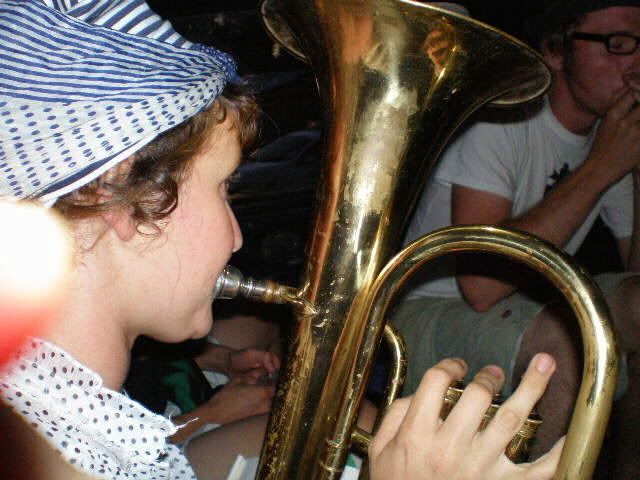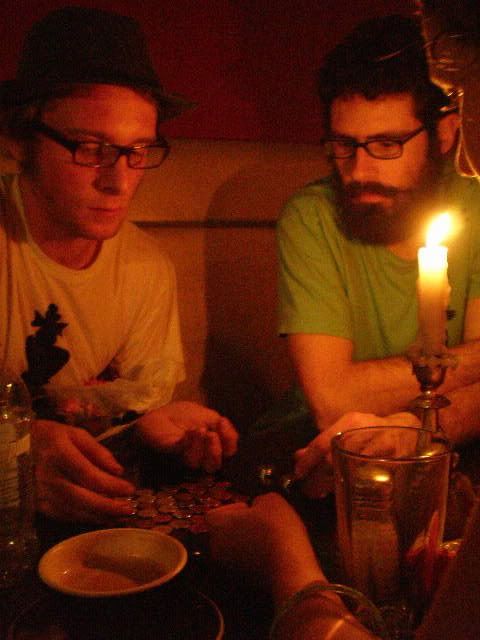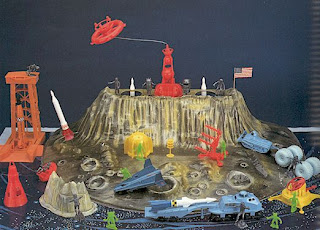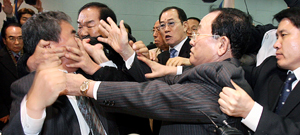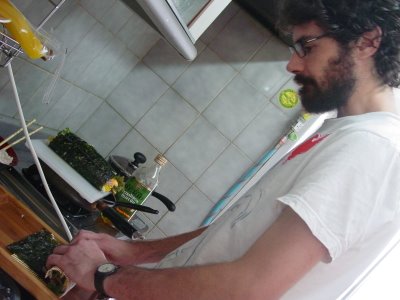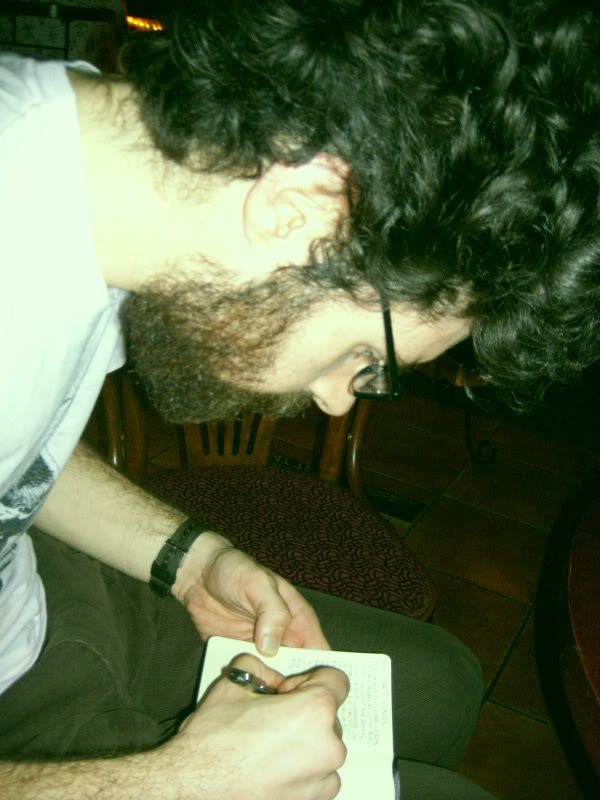August 22, 2007
Daejeon, Republic of Korea
Speaker Pelosi,Daejeon, Republic of Korea
I would say it has been about a year now since I first felt the tinge of excitement and anticipation that just maybe the tide of absurd neglect of reason, morals, logic and decency was beginning to ebb. From this same seat halfway around the world, I watched with childlike excitement as you and others from around the United States vowed to veer off of the path towards destruction that our country has taken over the past seven years. The feeling was almost palpable; the strength was gathering, we were right, and finally, perhaps we would win.
I look back now, and I contrast that feeling with the sense of betrayal, exhaustion, and disillusionment that I feel now, and I find it hard to believe that my side actually won in 2006. The people who were brave, bold voices for change in their campaign speeches turned out to be nothing but meager lap dogs, obsequious to the ruling oligarchy of Cheney, Inc. And you, speaker, seem to have taken the role of Alpha Female in that pack of subservient drivellers, beating the others into submission in order to bask in the warm affections of Bush et al.
Now, I did not vote for you in 2006 (I voted for Bill Winter in Colorado’s Sixth District, who unsurprisingly was stomped by card-carrying National Socialist Tom Tancredo), but I did vote for a change in my country. My choice for congressional representative did not win, but a party opposite to my dire enemies did win. And so, though you do not represent me directly, you do represent my drive for ideological change, as you are at the forefront of the opposition power. As such, your representation on that front is disappointing to the highest degree.
Let’s begin with the recent enactment of Public Law: 110-55, so quaintly known as the “Protect America Act of 2007”. This piece of legislative garbage is utterly unacceptable. I would be berating some poor Republican House Speaker about this if they still had the reigns, but the fact that I have to berate you about it really irks me. The number one reason we as America voted for you and your Democratic cohorts was so that you could halt the blatant abuse of power by the Bush Administration that went unchecked by a friendly congress. The NSA wiretapping program is of course not the only (or necessarily the most harmful) abuse of power by the Bush Administration, but it is one of the most visible and attention grabbing instances of a much wider problem. For you and your brethren to win on a ticket of halting abuse of power, and then, less than one year later, give a resounding stamp of approval to one of the most publicly visible instances of said abuse is just too much for me to handle. This new law seems to actually be more vague and grant more actual power to these scumbags than the REPUBLICAN Congress even offered. This, Nancy, is not why we voted blue in 2006.
Now, let’s talk about the big “I” word. We all know that our adventure in Mesopotamia has left all of us between and very big rock and a very hard place. I grant you that. But again, we voted for you to change what is happening there. And once again, under Democratic Congressional watch, things in Iraq did change in the last year, except in the opposite direction from where we wanted you to take them. We vote for you to limit executive power, and instead you increase it. We vote for you to limit U.S. military operations in Iraq, and you allow Team Cowboy to increase it. Is there some kind of magnetic field over the District of Columbia that causes it to be perpetual “opposite day”? You Democrats have the control over all the money that is needed to finance the war. You have the final say, and we support you in saying “NO MORE!” that’s why we voted for you. Unfortunately, you guys are like the mother of the heroin junky who just can’t seem to resist giving twenty dollars to your son, even though you know it will be used for something you are wholeheartedly against. What efforts you have made to alter Iraq policy have been wholly ineffective because they know you don’t have the willpower to cut off the money.
Finally, it’s time for the other, and more important, big “I” word. It’s time to impeach these jokers, no passing go, no questions asked. Everybody says: “we shouldn’t have gone to Iraq, but now that we’re there, what can we do?” The first thing we need to do is hold the criminals who took us there accountable. Without doing this, we could end up in an (yes, it is possible) even worse situation than we are in now. If we don’t send Cheney, Bush, and all of their minions who helped conjure up the fictitious “Iraqi Menace” straight to jail, then they will continue to conjure up the “Iranian Menace”. We need to stop this situation from spreading into an all-out regional bloodbath, not cause it to do so. Furthermore, there have been so many abuses of power, beyond the Iraq nonsense, that these jerks really need to pay for their actions. If you do not enforce the laws of your country, they carry no weight. And the most important laws to enforce are those that go to the very heart of our democracy. If order is not quickly restored to the foundations of our democratic institutions, they will lose all credibility, and be democratic in name only.
With Deepest Concern,
travis h. eddy
travis h. eddy









